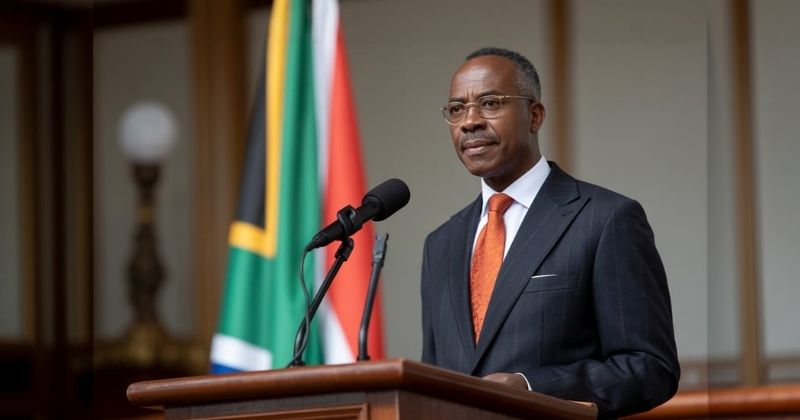
The Budget Speech is a key annual event where South Africa’s Finance Minister outlines the government’s income and spending plans for the year. It explains how much money will be raised through taxes and how it will be used across areas like healthcare, education, infrastructure and social grants. The speech has a direct impact on everyday life, influencing tax rates, fuel prices, and public services. For individuals and businesses, it offers a clear view of the government’s financial priorities and how they may affect personal finances and the wider economy.
Key Takeaways
- The Budget Speech outlines South Africa’s financial direction: It details how the government plans to raise and allocate public funds, covering tax policy, economic forecasts, and spending priorities such as infrastructure, healthcare, and social grants.
- Tax changes directly impact individuals and businesses: Adjustments to VAT, income tax brackets, sin taxes, and the fuel levy affect day-to-day costs, employee salaries, and product pricing across the economy.
- 2025 budget driven by compromise: VAT hike was scrapped after political pushback, but spending still increased in key areas like health and infrastructure.
About Arcadia Finance
Get matched with trusted lenders through Arcadia Finance. Compare offers from 19 NCR-compliant providers with zero application fees and a smooth, secure process.
The Budget Speech
The Minister of Finance presents the Budget Speech to the National Assembly each year. This address explains how government funds will be distributed to meet the key focus areas highlighted by the President during the State of the Nation Address (SONA). The speech also offers a summary of current economic conditions, outlines the status of the country’s public finances, and reports on how well government programmes are performing. In addition, it details the Treasury’s plan to raise the funds needed to support the priorities and commitments mentioned in the SONA for the upcoming financial year.

Key Components of the Budget Speech
The Budget Speech outlines the government’s financial plans and priorities for the year ahead. It includes several key components that explain how funds will be raised, how they will be spent, and what economic policies will guide the country during the financial year.

Economic Outlook and Fiscal Strategy
The speech begins with a summary of the country’s economic performance and projected outlook. This includes GDP growth estimates, inflation, unemployment figures, and debt levels. In 2025, GDP growth was projected at around 1.4 percent, with public debt expected to stabilise at 77.4 percent of GDP. The fiscal strategy focuses on responsible spending and limiting debt growth, while aiming for a primary budget surplus to improve long-term financial sustainability.
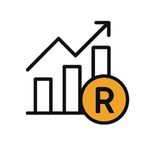
Revenue Measures
This section explains how the government plans to generate income. It includes changes to taxes such as VAT, personal income tax, excise duties on alcohol and tobacco, and carbon tax. In the initial 2025 proposal, a VAT increase to 16 percent was introduced but later reversed following political and legal challenges. The government still expects additional revenue through adjusted tax brackets and sin taxes.
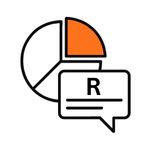
Expenditure Priorities
Here, the government outlines where public money will go. More than R1 trillion is planned for infrastructure projects over the next three years. Additional funds have been allocated to healthcare, education, public service wages, and defence. Social grants remain a central focus, with a commitment to supporting the country’s most vulnerable groups.

Fiscal Reforms and Budget Process
The Budget Speech also details plans to improve financial management. This includes efforts to strengthen SARS’s revenue collection, detect payroll fraud, and cut wasteful expenditure. The government also aims to improve transparency and accountability in the use of public funds, with more regular performance reviews of departments and programmes.

Political and Legislative Journey
Once the speech is delivered, Parliament must approve three budget-related bills: the fiscal framework, the Division of Revenue Bill, and the Appropriation Bill. In 2025, this process was delayed due to disagreements over the proposed VAT hike, resulting in several revisions before the budget was passed in June with support from both the ANC and DA.
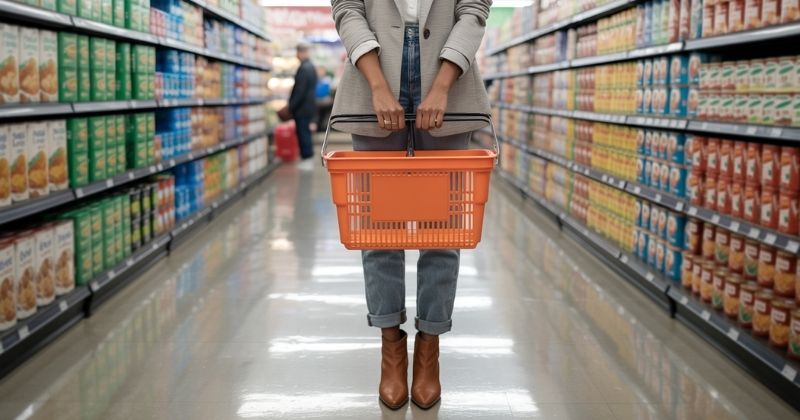
How Does The Budget Speech Affect Everything In The Short Term?
The Budget Speech often brings immediate changes that affect your monthly income and daily expenses. Any adjustments to taxes can influence the amount deducted from your salary and how much you spend on common goods and services. In particular, changes to income tax, VAT, and excise duties can have a direct impact on your finances within weeks of the speech being delivered.
Income Tax
Each year, government reviews income tax brackets to check whether salary increases linked to inflation are pushing people into higher tax bands. When tax brackets are adjusted, it helps to reduce the chance of workers paying more tax simply because their salaries rose in line with inflation. However, in this year’s budget, it has been proposed that there will be no change to the income tax tables, continuing the same approach as last year.
When tax brackets remain fixed but salaries increase, more workers can end up moving into higher tax brackets unintentionally. This process, known as bracket creep, results in a bigger portion of a person’s salary being taxed. As a result, individuals may find that their take-home pay does not grow in line with their salary increases, which can lead to tighter monthly budgets.
VAT Increase
Value-added tax (VAT) is a tax applied to most goods and services at every step of production and sale. It is a source of revenue for the state and directly affects the prices consumers pay. The government proposed raising the VAT rate in two phases, beginning with a small increase last year, followed by another rise this year.
This is the first VAT adjustment since the last major change several years ago, and it would cause everyday goods and services to cost slightly more. While the increase might seem small, it can have a noticeable effect on monthly expenses for many households. However, to cushion the blow, government has expanded the list of VAT-free food items, helping to protect basic food spending from the full effect of the increase.
Sin Taxes
Sin taxes are applied to goods or activities that are seen as harmful to personal or public health, such as tobacco, alcohol, and sugary drinks. These taxes aim to discourage use while generating extra funds for the government. Once again, the budget has introduced an increase in sin taxes, following a trend seen in recent years.
Consumers who purchase these items regularly will likely notice a rise in cost immediately after the budget takes effect. These tax hikes are often explained as part of broader public health strategies, but they also contribute to increased revenue collection.
Fuel Levy
The fuel levy is a tax included in the cost of petrol and diesel and directly affects transport and delivery prices across the country. In this year’s budget, the general fuel levy will remain unchanged, with no increase applied.
By not raising the fuel levy, government aims to provide some relief to consumers and businesses facing rising transport and living costs. This decision is expected to help reduce pressure on grocery prices and essential services that depend on fuel, saving households money over time and improving price stability.
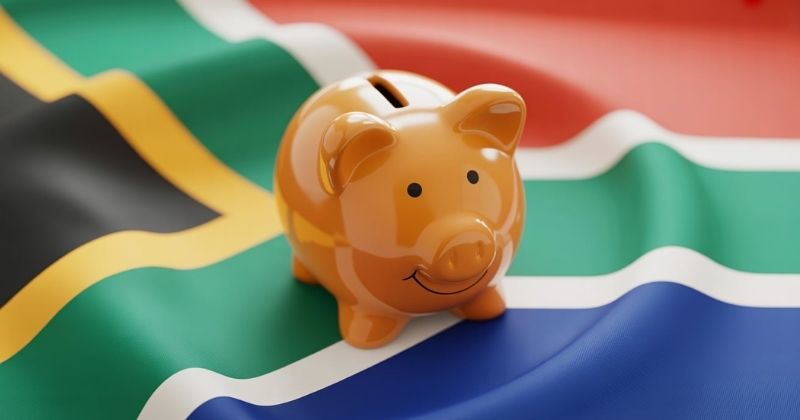
2025 South African Budget Speech Summary
| Category | Details |
|---|---|
| Date Delivered | 12 March 2025 (delayed from 21 February due to coalition disagreement over VAT hike) |
| Presented By | Minister of Finance: Enoch Godongwana |
| Context | – Tabled under a newly formed Government of National Unity (GNU) – Tensions between ANC and DA over proposed 2 % VAT increase led to delays – Mounting debt, slow economic growth, and high public wage costs prompted austerity talk |
| Proposed VAT Change | – Initially proposed a 0.5% VAT increase in May 2025 and another 0.5% in April 2026, raising VAT from 15% to 16% then 17% – Estimated to generate R13.5 billion in revenue – Met with backlash from DA, civil society, unions, and economists |
| VAT Outcome | – VAT increase scrapped in April 2025 after legal and political pressure – Budget revised with alternative measures to close the fiscal gap |
| Other Revenue Measures | – No inflation adjustment to personal income tax brackets (fiscal drag) – Increased excise duties on alcohol and tobacco (above inflation) – Carbon tax increased from R190 to R236 per tonne from 1 January 2025 |
| Debt & Deficit Outlook | – Budget deficit revised to 4.8% of GDP, up from 4.6% – Gross government debt projected to stabilise at 77.4% of GDP in 2025/26 – Debt servicing remains one of the largest spending items |
| Expenditure Pressures (MTBPS) | R252.6 billion added to medium-term spending, including: – R75.6 billion for health, education, and police – R46.7 billion for infrastructure – R23.4 billion for public sector wages |
| Total Government Spending | – Expected to grow from R2.4 trillion (2024/25) to R2.84 trillion by 2027/28 – Real expenditure growth projected at 1.1% annually |
| Social Wage Commitment | – Social services account for 61% of non-interest spending – Key focus areas: health (HIV/AIDS programmes), education, social grants |
| Public Sector Wage Bill | – Wage bill remains over 35% of non-interest expenditure – Negotiated wage hikes included in budget; early retirement and hiring freeze proposed to reduce long-term costs |
| Key Reforms & Cost Containment | – Spending reviews across departments to identify savings – Plan to reduce inefficiencies and “ghost employees” in the public service – Strengthened use of data analytics and HR systems – Capex reform to cut low-return infrastructure projects |
| Infrastructure Investment | – Expanded blended finance model for infrastructure – Focus on energy, transport, water, digital infrastructure – Operation Vulindlela Phase II to speed up regulatory reforms |
| Municipal & Governance Support | – Renewed focus on municipal finances and service delivery – Introduction of stricter conditions for equitable share grants |
| Parliamentary Approval | – Budget passed in June 2025 following VAT hike reversal – Received support from ANC, DA, ActionSA – Vote result: 268 in favour, 88 against |
| Public and Market Reaction | – Markets stabilised after political agreement – Credit spreads improved; rand gained slightly – Political fallout exposed fragile GNU alliance and governance risks |
Conclusion
The Budget Speech plays a central role in shaping South Africa’s economic direction each year. It outlines how government plans to manage revenue and public spending while addressing challenges such as low growth, rising debt, and service delivery needs. For individuals, it influences tax obligations, the cost of living, and access to social support. For businesses, it signals changes in regulations, tender opportunities, and tax compliance requirements. Staying informed about the content of the Budget Speech can help households plan their finances more effectively and allow businesses to adjust their strategies to remain resilient and competitive in a changing economic environment.
Frequently Asked Questions
The Budget Speech outlines how government intends to raise and spend public money for the year ahead. It also includes updates on economic conditions, tax policy changes, and spending plans for key sectors like health, education, and infrastructure.
The Budget Speech is usually delivered in February each year, before the new financial year begins on 1 April. However, this may shift depending on political or administrative changes, as seen in 2025 when it was delayed to March and May.
The speech affects take-home pay, prices of goods and services, and access to government services. Changes to VAT, income tax, and fuel levies can influence monthly expenses for individuals and families.
VAT is a major source of government revenue, so any changes to the rate are announced in the Budget Speech. Adjusting VAT affects the cost of most goods and services and has a direct impact on household spending.
It was postponed due to political disagreement within the coalition government over a proposed VAT increase, which was later withdrawn.
Fast, uncomplicated, and trustworthy loan comparisons
At Arcadia Finance, you can compare loan offers from multiple lenders with no obligation and free of charge. Get a clear overview of your options and choose the best deal for you.
Fill out our form today to easily compare interest rates from 19 banks and find the right loan for you.

